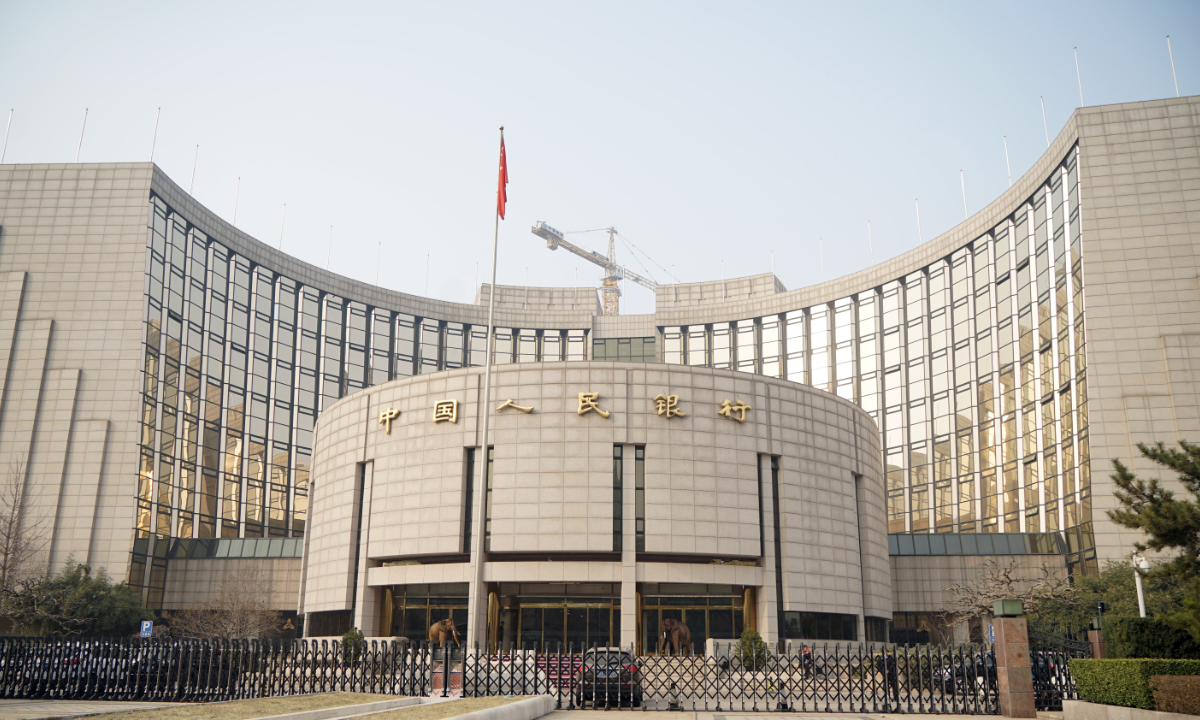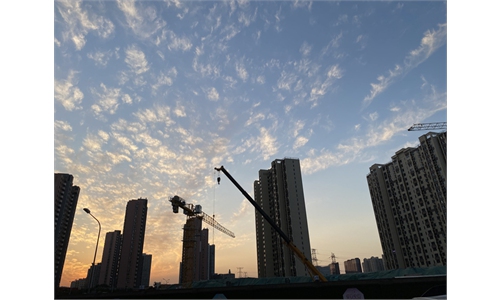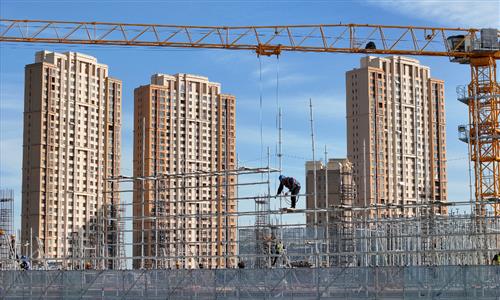China’s big six state-owned banks hold talks with property developers regarding financing demand

The headquarters of the People's Bank of China (Photo: Xinhua)
China's big six state-owned banks have held talks with real estate companies regarding financing demand amid sluggish sales, according to National Business Daily on Monday.
The Postal Savings Bank of China and Bank of China announced on Monday that they had conducted one-on-one dialogues with property developers to discuss new types of cooperation between banks and the industry, the last two state-owned banks to have engaged in such discussions with developers in terms of financing demand.
The Postal Savings Bank of China said that the discussions were made with state-owned, mixed ownership and private enterprises, and the topics covered industry performance, policy requirement and market demand.
The China Construction Bank on November 24 held talks with six property developers over their funding needs, and communicated with them in terms of bond underwriting and investment, loans for operating properties, bank credit enhancement, and offshore and cross-border financing.
As of Monday, China's big six state-owned banks, including Agricultural Bank of China, Bank of China, Bank of Communications, China Construction Bank, Industrial and Commercial Bank of China and the Postal Savings Bank of China had all held talks with real estate companies, aiming to strengthen ties with the real estate industry and address problems.
There are more than 20 real estate companies attending the discussions, including Vanke Group, Longfor Group and Midea Real Estate Holdings, according to announcement by the banks.
The real estate companies have generally expressed concern about the guarantee of loan quotas for new investment projects, and they also expressed that they held various types of commercial properties and were eager to quickly and fully utilize such assets for daily operations, according to a report from chnfund.com.
The discussions with real estate companies were following a joint meeting by People's Bank of China, the National Financial Regulatory Administration and China Securities Regulatory Commission on November 17, which emphasized that financial institutions should meet the reasonable financing needs of real estate enterprises of different ownerships.
The meeting also stressed that the financial institutions should support reasonable equity financing, accelerate the real estate financial supply-side reform, and discover new models of real estate development.
The banks have vowed to support property developers with different ownerships without discrimination and promote the construction of three major projects, which include subsidized housing, urban village rehabilitation and public infrastructure development.
The China Construction Bank stressed the importance of promoting a virtuous cycle of finance and real estate, while Industrial and Commercial Bank of China expected to invest more in real estate development loans, personal home loans, bond underwriting and investment, to support non-state-owned real estate enterprises.
Real estate sales in China have been under pressure, in November, the top 100 real estate enterprises in China reported sales of 390.2 billion yuan ($55.1 billion), down 29.6 percent year-on-year. In the first 11 months of 2023, the enterprises' sales decreased 14.4 percent year-on-year, down to 4953.7 billion yuan, according to Real Estate Information Corp, or CRIC, a unit of E-House (China) Enterprise Holdings Ltd.
In December, banks will come out with clearer guidance and support objectives, according to Yan Yuejin, research director at Shanghai-based E-house China R&D Institute.
The financial sector should strengthen coordination with fiscal and regulatory policies, proactively adapt to the major transformation of the real estate market, adhere to the principle that China will continue to uphold the principle that houses are for living in, not for speculation, and prevent the risk spillover of the real estate market, according to an article by Pan Gongsheng, governor of the People's Bank of China, the central bank, which was published on the People's Daily on Monday.





